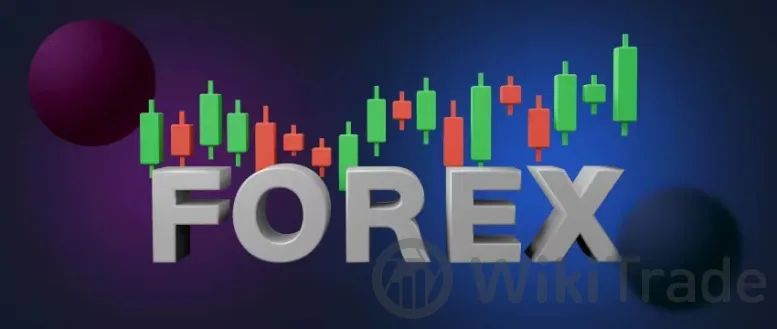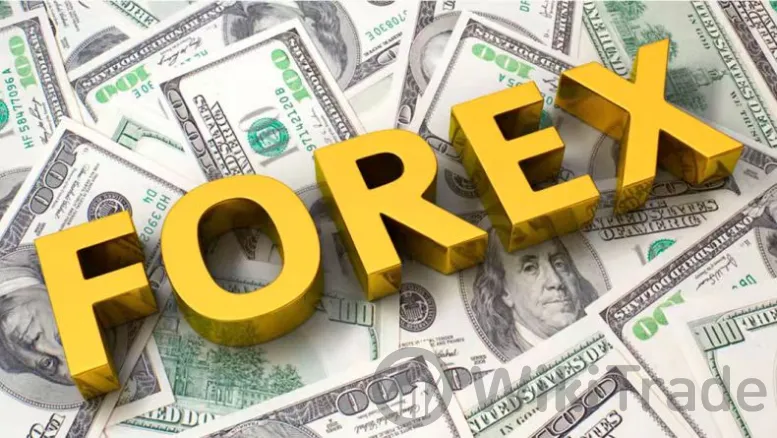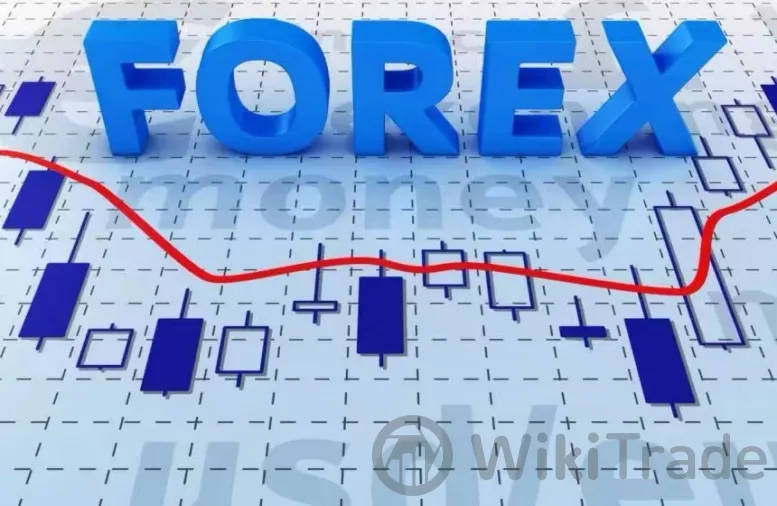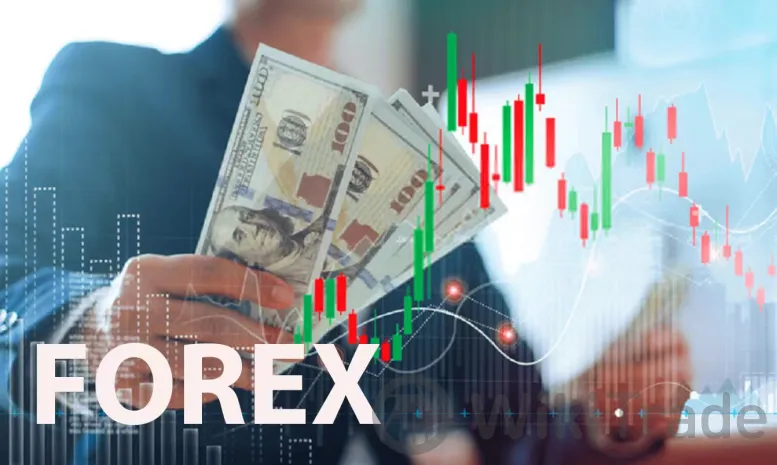Who is the Richest Forex Trader in Nigeria
Abstract: Uche Paragon is currently recognized as the richest Forex trader in Nigeria, boasting an estimated net worth of between $16 to $20 million . He began his trading career in 2007 and has since amassed considerable wealth through his successful endeavors in the forex market. Paragon is also the owner of two forex trading institutions, one in Lagos and another in Port Harcourt, as well as a thriving business called CCI Traders . His focus on trading oil, one of the most volatile commodities, has contributed significantly to his financial success .
Overview of the Nigerian Forex Market
The foreign exchange market in Nigeria has undergone significant transformations over the past decades. Initially, the forex market was tightly regulated, with the Central Bank of Nigeria (CBN) controlling and overseeing the exchange rates. However, with economic reforms and the adoption of more market-driven policies, the forex market in Nigeria has become more vibrant and accessible to a wider array of traders.
In recent years, Nigeria has seen an influx of retail forex trading platforms that have democratized access to global currency markets. These platforms offer sophisticated tools and resources, allowing local traders to engage with international markets directly. The advent of online trading has also spurred a wave of interest among younger demographics, eager to leverage forex trading for potential profits.

Key Forex Traders in the Current Market
While there are numerous successful forex traders in Nigeria, a few have risen to notable prominence due to their strategic insight and substantial earnings. These traders often share a common set of characteristics, including a deep understanding of market trends, risk management skills, and the ability to anticipate changes in currency valuations influenced by both local and international economic events.
Profiles of such traders typically include their start in the industry, key milestones in their trading career, and the strategies they employ to maintain profitability in a highly volatile environment. Interviews and insights from these traders provide aspiring traders with inspiration and practical strategies for navigating the forex market.
The forex market plays a pivotal role in the Nigerian economy. It not only facilitates international trade and investments but also significantly influences the economic stability of the country. The fluctuation of the Naira against other currencies can have far-reaching effects on inflation, prices of goods, and the purchasing power of the average Nigerian.
Moreover, the forex market contributes to the nation's Gross Domestic Product (GDP) in various ways, including through earnings from trading activities and investments. The growth of the forex market has also led to job creation, particularly in finance, tech, and customer service sectors supporting the trading infrastructure.
The dynamic nature of the forex market and its influence on the economy make it a critical area for regulatory oversight and economic strategy. Policymakers continue to grapple with finding the right balance between allowing market forces to operate and mitigating any adverse effects on the economy.

Nigeria's Richest Forex Trader
In the competitive and tumultuous world of forex trading in Nigeria, one trader has risen above the rest to claim the title of the richest. This individual, whose journey began in the buzzing markets of Lagos, has not only mastered the art of trading but also serves as an inspiration to many aspiring traders. Originating from a background that offered few financial resources, the trader leveraged their keen analytical skills and an innate understanding of market forces to build a fortune.
Analysis of Key Success Factors
The meteoric rise of Nigerias richest forex trader can be attributed to several key factors:
Market Acumen: An exceptional grasp of both local and international market dynamics and economic trends has allowed the trader to make lucrative trades that many others missed.
Risk Management: Effective strategies to mitigate losses, including stop-loss orders and hedging techniques, have played a crucial role in safeguarding their investments.
Technological Utilization: Adopting advanced trading software and algorithms has enabled real-time decision-making and faster execution of trades, crucial in the volatile forex market.
Continual Learning and Adaptation: Staying updated with global economic news and continuously adapting strategies to meet the ever-changing market conditions.
Trading Strategy and Wealth Management
The trading strategy that has proved most effective for Nigerias richest forex trader involves a balanced mix of scalping, which secures small gains from short-term trades, and swing trading, which capitalizes on market momentum. This combination allows the trader to maximize profits from market volatility while maintaining a steady income from longer-term trends.
In terms of wealth management, the trader diversifies their portfolio to include investments in real estate, tech startups, and even agriculture, spreading risk and capitalizing on different economic sectors. Such diversification not only secures its fortune but also contributes to its growth, independent of forex market fluctuations.

The Rise of Digital Art and NFTs
Digital art transcends traditional boundaries of artistic creation by incorporating digital technologies into the process. Over the years, digital art has evolved from pixelated scenes on early computers to sophisticated 3D models and virtual reality art installations. This progression has been driven by advancements in digital technology, including enhanced graphic design software, digital pens, and augmented reality platforms.
The market for NFTs, particularly digital art, has seen unprecedented growth in recent years. Initially perceived as a niche interest, NFTs have garnered immense popularity and value, with single pieces selling for millions of dollars. The allure lies in their uniqueness and the blockchain technology that ensures the authenticity and ownership of digital works. This has attracted a new wave of collectors and investors, keen on exploring this modern blend of art and technology.
Introduction to Major NFT Art Market Platforms
Key players in the NFT marketplace include:
OpenSea: As the largest and most versatile platform, OpenSea offers a wide range of NFTs, including art, virtual real estate, and digital collectibles.
Rarible: Known for its artist-centric approach, Rarible allows artists to issue and sell custom crypto assets that represent ownership in their digital work.
Foundation: This platform caters to digital artists and collectors looking for exclusive pieces, facilitating auctions and sales of high-value NFTs.

Integrating NFTs with Forex Trading
In recent years, Non-Fungible Tokens (NFTs) have emerged not just as collectibles but as bona fide investments. For forex traders, integrating digital art into their investment portfolios offers a form of diversification beyond traditional financial instruments. Digital artworks are unique assets that hold value independently of market cycles affecting stocks, bonds, or currencies. This independence can provide stability in a well-rounded investment portfolio, especially in volatile markets.
The liquidity of the NFT market is a critical aspect for forex traders who might consider it a viable component of their investment strategies. While traditionally less liquid than currency markets due to the unique, non-interchangeable nature of each NFT, the growing popularity and user base have started to introduce more fluidity. This liquidity variation can influence forex strategies, especially for those traders who utilize profits from NFT sales as a buffer or additional capital for forex trading operations.
Forex traders typically thrive on volatility and leverage, but with the integration of NFTs, they can adopt a more balanced approach. By allocating part of their capital to NFTs, traders can potentially offset the high risks associated with forex markets. Additionally, the use of blockchain technology in NFTs provides a level of security and transparency not always evident in forex markets, appealing to traders who value these features in investment vehicles.

Case Study of Forex
Consider the case of a Lagos-based forex trader, who diversified into NFTs early in 2020. By allocating 20% of their investment capital towards digital art, this trader not only safeguarded their portfolio against forex market downturns but also tapped into the burgeoning NFT market boom. They focused on acquiring NFTs from emerging digital artists, thereby securing potentially undervalued assets that offered high returns as these artists gained recognition.
Detailed Analysis: Returns, Risks, and Challenges
The trader experienced a significant return on investment, with some NFTs appreciating over 300% in value within months. However, this strategy was not without risks. The NFT market is prone to speculation, and prices can be highly volatile, similar to the forex market. Additionally, the digital nature of NFTs presents challenges such as potential cybersecurity threats and the need for a deeper understanding of blockchain technology.

FAQs
Who is currently considered the richest forex trader in Nigeria?
While specific earnings and net worth figures are typically private, one prominent name in the Nigerian forex trading community often mentioned is Uche Paragon. He is reported to have significant investments both in forex trading and in commodities, with claims of earning millions of dollars annually. However, it's essential to approach these figures with caution as they can be speculative and vary from year to year.
What strategies do successful forex traders in Nigeria use?
Successful forex traders in Nigeria often employ a mix of technical and fundamental analysis to guide their trading decisions. Technical analysis involves the study of past market data, primarily price and volume, to forecast future price movements. Fundamental analysis, on the other hand, involves analyzing economic indicators, central bank decisions, and other political or financial news that could affect currency values. Risk management is another critical strategy, involving the use of stop-loss orders and proper leverage to protect investments.
How can beginners start trading forex in Nigeria?
For beginners in Nigeria wanting to start forex trading, the first step is to gain a solid educational foundation on the workings of forex markets and trading techniques. Many online platforms offer courses ranging from basic to advanced levels. After education, the next step is to choose a reliable forex broker regulated by a reputable authority, such as the Financial Conduct Authority (FCA) in the UK or the Securities and Exchange Commission (SEC) in Nigeria. Starting with a demo account to practice trading without financial risk is highly recommended before moving to live trading.
What are the risks associated with forex trading in Nigeria?
Forex trading involves significant risks, as it is highly volatile and leveraged. Traders can lose more than their initial investment if not careful. The risks include market risk, where currency values can fluctuate wildly based on global economic changes; leverage risk, since using borrowed money can amplify losses; and interest rate risk, where changes in interest rates affect currency strength. Additionally, there's also the risk of broker insolvency and regulatory changes that could impact trading terms and conditions.
Are there any legal restrictions on forex trading in Nigeria?
Forex trading is legal in Nigeria, but it is regulated by the Central Bank of Nigeria (CBN) and the Securities and Exchange Commission (SEC). Traders are required to use platforms that are fully registered and compliant with these regulatory bodies. Traders need to ensure they engage in forex trading through channels that abide by the legal and regulatory frameworks to avoid penalties and ensure the security of their investments.
What are the best times to trade forex in Nigeria?
The best times to trade forex in Nigeria are during periods of high market liquidity and volatility, which typically occur during the overlap of major trading sessions. For Nigerian traders, the most active forex trading hours are when the London session overlaps with the New York session, approximately between 1:00 PM and 5:00 PM Nigerian time (GMT+1). Additionally, trading during the release of significant economic reports and central bank announcements can also provide good trading opportunities, though these times require careful risk management due to increased volatility.
How does currency fluctuation affect forex trading in Nigeria?
Currency fluctuations are a fundamental aspect of forex trading, as they determine the potential profits or losses traders can incur. In Nigeria, traders must be especially aware of the fluctuations in the Naira (NGN) against other major currencies. Economic stability, inflation rates, interest rates, and political events can significantly affect the NGN's value. Successful traders often keep a close watch on both global economic indicators and local events such as decisions made by the Central Bank of Nigeria, which could influence currency strength.
Can forex trading be a full-time career in Nigeria?
Forex trading can indeed be pursued as a full-time career in Nigeria, but it requires a significant amount of skill, discipline, and risk management. Professional traders often have years of experience and have developed robust trading strategies that can withstand the market's ups and downs. Furthermore, it requires a sound financial base to accommodate the potential periods of drawdown. Prospective full-time traders should also consider the psychological aspects of trading full-time, which can include dealing with significant financial stress and maintaining strict self-discipline to follow trading plans consistently.
Here are some related information resources.
https://youtu.be/mhBWS3cz1so?si=p0X8E2-usQwI6nAz




Top News
 WikiTrade
WikiTrade WikiTrade
WikiTrade WikiTrade
WikiTrade WikiTrade
WikiTrade WikiTrade
WikiTrade WikiTrade
WikiTrade WikiTrade
WikiTrade WikiTrade
WikiTrade WikiTrade
WikiTrade WikiTrade
WikiTrade


